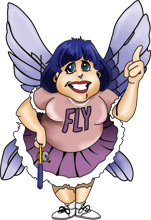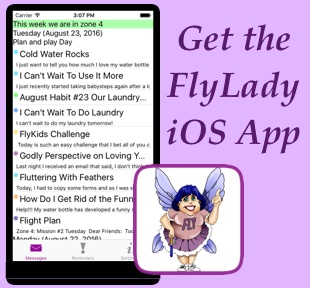Supporting our children in finding their gifts is one of our most important jobs as parents. When children struggle in school, parents and teachers often become so focused on problems that they forget to discover and nourish gifts. Everyone needs to be successful at something.
Remember that success breeds success! Success brings confidence, energy, and motivation, and that spills over into everything else. It’s like a self-fulfilling prophecy. When children have a positive frame of mind, good things are just more likely to happen. When they feel confident, they can think clearly and work efficiently.
There are many different ways to be “smart”. “School smart” or “book smart” is only one way – it requires logical, sequential reasoning skills; a good memory; and the ability to think abstractly. But we all know people who have a “green thumb” with plants, or who have a wonderful way with animals. Many others have a wonderful way with people – they have great leadership skills and a sense of how to help. Lots of people who have trouble reading can take an engine apart, figure out what’s wrong, and put it back together perfectly. Some of the most spiritual people I’ve known have been very simple people in other ways. I’m always impressed with people who are talented in the arts – those who can draw, paint, sing, play an instrument, or act. It takes all kinds to make a world!
So what should we do as parents? We need to work very hard to help our children do as well as possible in school, both with learning and with discipline, and then work just as hard at helping our children find their gifts. When I talk to parents of disabled children, I tell them that their most important job is to find out what their child is good at and make sure he has every opportunity to excel in that area. We all have to be good at something or we just give up on ourselves. Remember that sometimes we adults get so focused on a child’s weaknesses that we forget about strengths, and strengths are what each of us builds our life on.
Summer Challenge: Finding my child’s gift
Go to the worksheet that follows these instructions, and follow the steps for each of your children:
1. Write down every adjective you can think of that describes your child – words like funny, serious, athletic, cheerful, creative, kind, fair, loving, helpful, bossy, sensitive, short-tempered, and loud.
2. Write down the five things that your child does best – things like “make people laugh”, “sing”, “write stories ”,“ help dad in the yard”, and “hit a baseball”.
3. Write down the five things that your child would choose to do most often if she could pick anything – things like “read a book”, “play outside with friends”, “build with blocks”, “play on a soccer team”, “go fishing”, “listen to music”.
4. Write down the five things that make you the proudest of your child. We’re not only thinking about things your child does. We’re also thinking about personality traits like having a strong sense of justice, a kind and loving nature, a cheerful spirit, a willingness to help, a determined spirit, or a sense of adventure.
5. What has your child said he would like to be when he grows up? Younger elementary school children probably don’t have a clue (other than wanting to be a fireman or an astronaut), but from the age of nine or so they start getting more realistic ideas. Write down any career ideas your child has mentioned.
6. Make a note of any organized programs or lessons that your child has participated in, and whether or not she enjoyed the activity. Think about youth soccer, church choir, dance lessons, tee-ball, piano lessons, gymnastics, library programs – those sorts of things. Ask the P.E., art, and music teachers at school if they have observed any special talents.
7. Sit down with someone else who loves your child and look over what you have written down. Do you see any patterns? Jot down the kinds of experiences that would help your child explore and develop these gifts.
8. Make a commitment to provide your child with at least one of these experiences. It might be piano or art lessons, or it might be joining a Scout troop. It might be getting your child a library card and getting them to after-school library programs. It might mean planning family vacations around your children’s interests – a trip to the Kennedy Space Center, for example. Or it might be as simple as teaching your child to cook or helping him hunt for bugs in the garden. Write down your plans and follow through!
Finding My Child’s Gift
Descriptive words:
Best at:
1.
2.
3.
4.
5.
Chooses to:
1.
2.
3.
4.
5.
What makes me proud?
1.
2.
3.
4.
5.
Career interests:
Activities (put a check mark next to the favorites):
Talents others have observed:
What are this child’s gifts?
What experiences would develop that gift?
My plan for providing at least one of these experiences:
Where:
When:
How:




